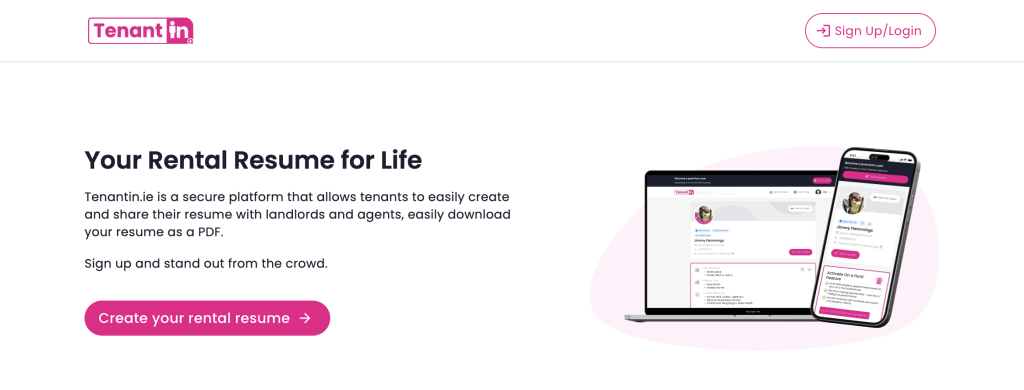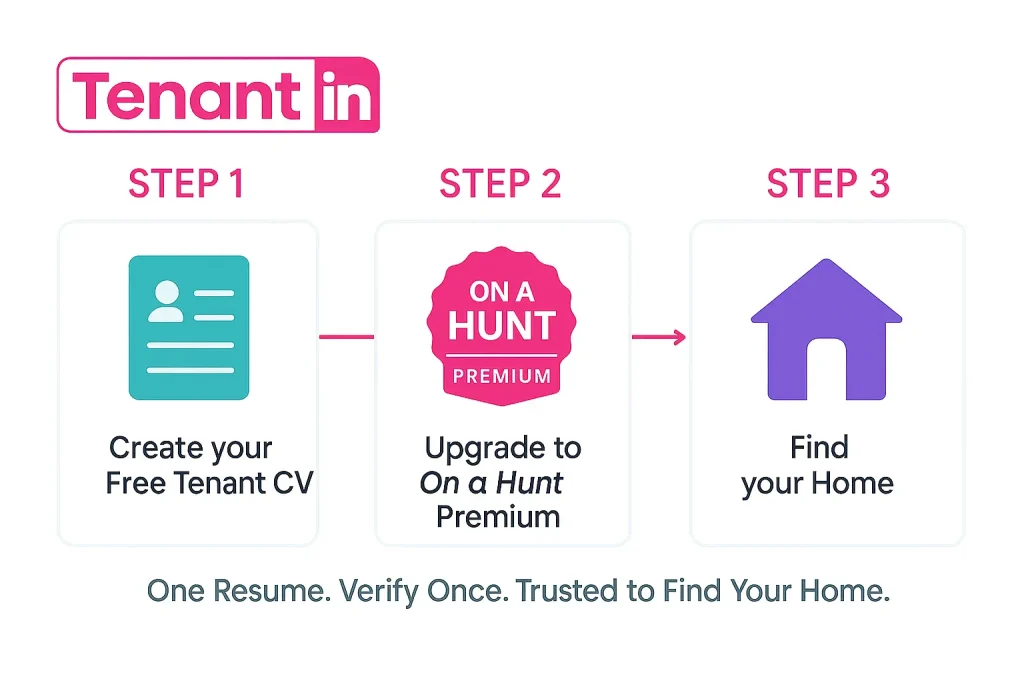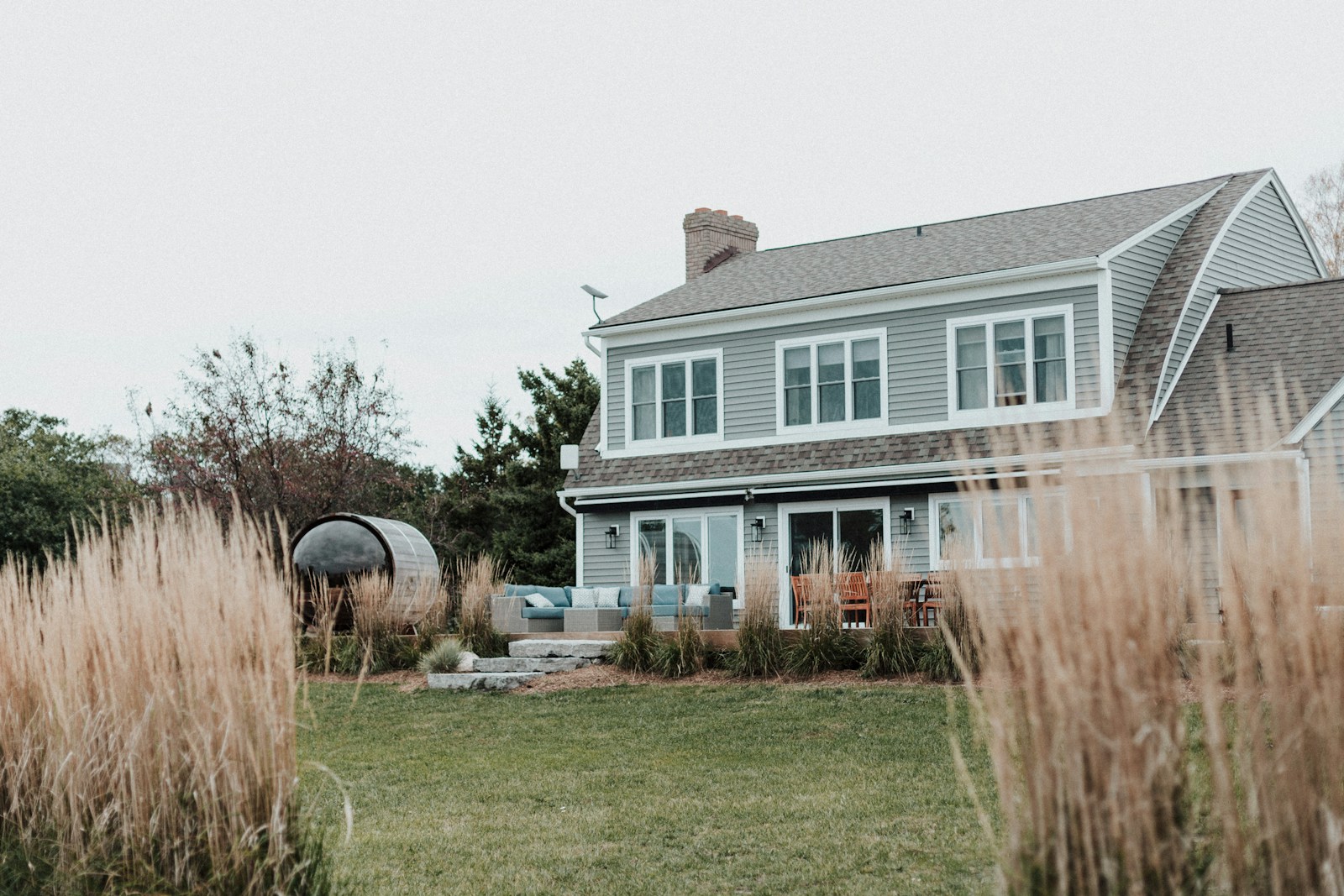Renting in Ireland for the first time can feel like stepping into unfamiliar territory. Whether you’ve just arrived from abroad or you’re moving out on your own for the first time, there’s a lot to consider. From understanding local rental practices to presenting yourself to landlords, every step matters. One of the smartest things you can do early on? Create a strong tenant resume that outlines your rental history and personal profile.
In this complete guide, we’ll walk you through everything you need to know about how to rent your first property in Ireland—from preparation to securing the keys.
Understand the Basics of Renting in Ireland
Ireland’s rental market can move fast, particularly in major cities like Dublin, Cork and Galway. Listings often receive dozens of enquiries within a few hours, which means first-time tenants need to act quickly and present themselves professionally.
As a tenant, your responsibilities include:
- Paying rent on time
- Keeping the property in good condition
- Following the terms of your lease
- Giving proper notice if you plan to leave
Meanwhile, landlords are responsible for maintaining the property, managing deposits, and registering your tenancy with the Residential Tenancies Board (RTB). But before any of that happens, you’ll need to stand out among other applicants—and that’s where your tenant profile comes into play.
Why a Tenant Resume Matters for First-Time Renters
As a first-time renter, you may not have an extensive rental history, but that doesn’t mean you can’t make a strong impression. A tenant resume is a simple yet powerful document that introduces you to landlords and gives them confidence in your reliability.
Your tenant resume should include:
- Your full name and contact information
- A short personal introduction
- Employment or income details
- Any past rental history (even short-term or abroad)
- References from employers or former landlords
- Supporting documents such as ID or proof of income
Creating this kind of document shows initiative and professionalism. It puts you ahead of many renters who rely solely on email messages without any structured information.
Tenantin.ie offers a free tool to help you build this exact profile. Once completed, you can download your tenant resume and send it to landlords directly, helping you stand out even without prior experience.
How to Search for Your First Rental
Once your profile is ready, you can begin searching for listings that match your needs and budget. Consider:
- Your preferred location
- Monthly rent limit
- Property size and type
- Whether it’s furnished or unfurnished
- Access to transport, shops, and work or study locations
It’s a good idea to set alerts so you don’t miss out on new listings. Tenantin.ie offers a premium feature called “On a Hunt” which includes:
- Daily email updates on new properties
- Automatic applications to listings that match your profile
- Personal assistance from an account manager
- Increased visibility with active landlords
Even if you’re not ready to upgrade, using the free resume tool puts you in a better position than most first-time tenants.
Documents You Need Before Applying

Before attending viewings or sending messages to landlords, make sure you have the following ready:
- Photo ID: Passport or national identity card
- Proof of Income: Payslips, employment contract, or letter from employer
- References: If you don’t have a previous rental history, a work or academic reference can help
- Bank Statements: Some landlords request recent statements to check affordability
- Tenant Resume: Your complete profile summarising all of the above
Having these documents ready will speed up the process and show landlords that you’re prepared and trustworthy.
What If You Have No Rental History?
It’s perfectly normal for first-time renters to have little or no rental history. The key is to focus on what you do have:
- A steady income or proof of funds
- A strong reference from an employer or college
- Clear communication and prompt responses
- A professional tenant resume that presents your information clearly
Landlords are often open to first-time tenants as long as they seem reliable and financially stable. By being transparent and organised, you can still secure a great rental.
Attending Viewings and Making a Good Impression
Once you’re invited to a viewing, you’ll have a short window to make an impression. Here’s how to prepare:
- Arrive on time and dress neatly
- Greet the landlord or agent politely
- Ask relevant questions (e.g. about utilities, neighbours, lease terms)
- Follow up with a short thank-you message and re-send your tenant resume
If you like the property, don’t wait—confirm your interest as soon as possible. Supply your documentation right away to increase your chances.
Avoiding Common Mistakes as a First-Time Tenant
It’s easy to make missteps when you’re unfamiliar with the system. Here are a few things to avoid:
- Delaying applications: Properties move fast, especially in cities
- Not reading the lease: Always read the rental agreement carefully
- Paying before seeing: Never transfer money before viewing a property or verifying the landlord
- Being vague in messages: Introduce yourself clearly and professionally from the start
By being proactive and well-prepared, you’ll sidestep these common pitfalls and increase your chances of success.
How Tenantin.ie Supports First-Time Renters
Tenantin.ie was built to make renting in Ireland easier for tenants—especially those who are just starting out. Whether you’re a student, a recent graduate, or moving from abroad, our tools are designed to help you stand out and secure your ideal home.
With free services like tenant resume creation and premium support through our “On a Hunt” feature, we aim to level the playing field for renters who may not yet have a long rental history.
Final Thoughts

Your first time renting in Ireland doesn’t have to be daunting. With the right preparation, a clear tenant resume, and a good understanding of how the market works, you can move forward with confidence. Landlords aren’t just looking for experience—they’re looking for trustworthy, communicative tenants. That can be you.
Use your strengths, be organised, and let tools like Tenantin.ie support you in your rental journey.
Frequently Asked Questions
1. What are the initial steps I should take when looking to rent in Ireland?
Start by determining your budget and preferred location. Research different areas to understand rental prices and community amenities. Make a list of your must-haves, like proximity to public transport or schools, to help narrow down your options.
2. Where can I find rental listings in Ireland?
You can find rental listings on property websites like tenantin.ie, which offer a range of properties across various regions. It’s important to regularly check these platforms as new listings can appear daily.
3. What documents are typically required when applying for a rental property?
Landlords usually require personal identification (such as a passport), employment references, previous landlord references, and sometimes proof of financial stability like bank statements or pay slips.
4. How much is a typical security deposit, and when do I get it back?
The security deposit is generally equivalent to one month’s rent. It is refundable at the end of your tenancy, provided you meet the terms of your lease, such as returning the property in good condition and settling any outstanding bills.
5. What should I look for during a property viewing?
Inspect the property’s condition, including appliances, heating systems, plumbing, and security features. Consider noise levels and light orientation. Don’t hesitate to ask questions about utilities, internet availability, or any maintenance responsibilities.
6. What are my rights as a tenant in Ireland?
Tenants in Ireland have specific rights protected by law, including the right to a rent book, privacy, proper notice before eviction, and maintenance of safe living conditions. For more detailed information on your rights as a tenant, visiting resources like tenantin.ie can be very helpful.
7. How do I ensure the lease agreement is fair and legal?
Thoroughly read your lease agreement before signing. It should outline terms regarding rent payments, duration of tenancy, notice periods for termination, and responsibilities for repairs. If unsure about any clauses, seek advice from a legal professional.
8. Can I negotiate rent prices with landlords?
While it’s possible to negotiate rent prices, especially if you can demonstrate long-term stability or have identified comparable properties with lower rates, it’s not guaranteed that landlords will agree to lower rent.
9. Do I need renter’s insurance in Ireland?
While not legally required, renter’s insurance is advisable as it covers your personal belongings against theft or damage and might offer liability coverage if someone gets injured in your home.
10. How can I avoid rental scams?
Be cautious of listings that seem too good to be true or requests for money before viewing the property. Always verify the identity of anyone claiming to be a landlord or agent and use reputable platforms like tenantin.ie to minimize risks.







